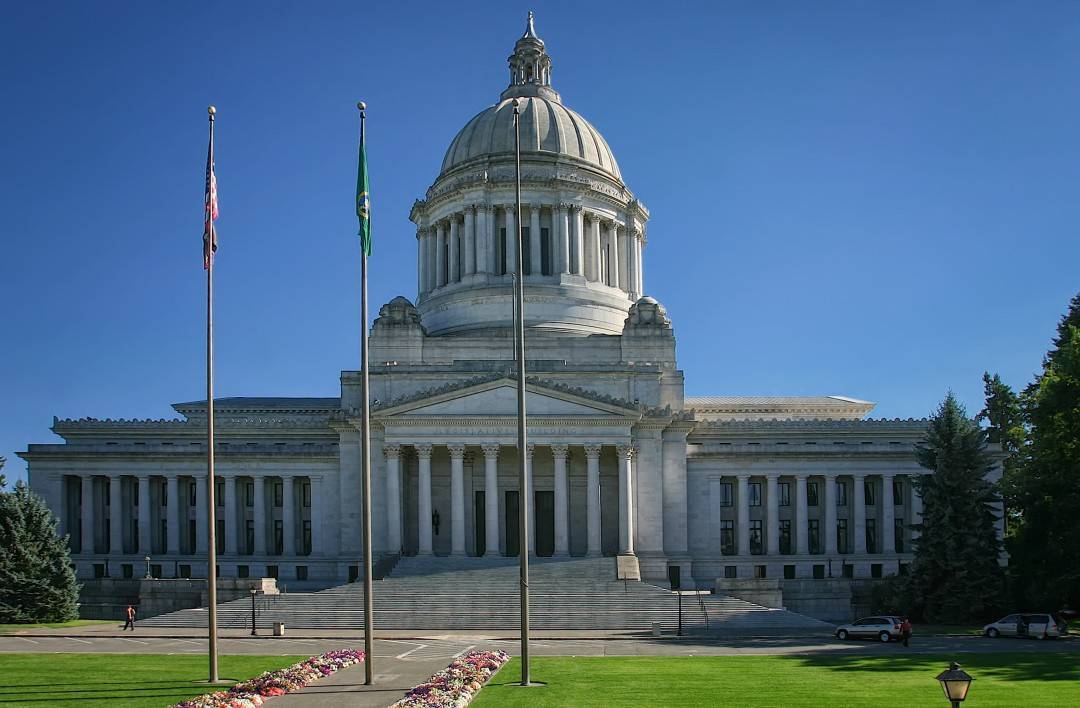A bill that would tax oil in pipelines to fund oil-spill prevention planning passed out of a state Senate committee — but only after a proposed tax hike was dropped.
The legislation, SB 6269, would levy taxes on oil transported in Washington state, including oil that travels by pipeline, to fund oil spill prevention and response programs.
But moving the bill out of committee on Jan. 31 came at a cost: In addition to expanding the tax to oil pipelines, the original legislation would have also hiked the fee rate from four cents per barrel — oil is typically measured in 42 gallon barrels — to six cents. The amended bill removed the increased tax rate, but maintained the expansion of the tax to oil pipelines.
Additionally, the bill would mandate that the state Department of Ecology update its oil spill contingency plans to deal with heavier oil from tar sands, study past incidents and make recommendations on how to reduce spill risk with new regulations, and conduct drills.
Lastly, SB 6269 would require that Ecology create a forum to coordinate state, local, and Canadian spill prevention efforts.
“Right now, we have no ability to respond to a tar sands oil spill,” said Sen. Kevin Ranker, D–Orcas Island, the primary sponsor of the legislation. “This year is about securing the money, updating the plans.”
Ranker said that he had to compromise to move his bill forward, and voted for an amendment to cut the tax increase from the final version of the bill to get enough votes for it to pass it out of the Senate Energy, Environment, and Technology Committee.
“I didn’t have enough votes to get it out of committee,” he said. “That’s the negative side of politics. … Sometimes you have to make compromises in areas that you shouldn’t.”
However, Sen. Ranker said that he thinks that he’ll be able to get the tax hike back into the bill later on in the legislative process, but wouldn’t give specifics on how exactly he plans to get the tax reintroduced.
“The ultimate goal is that the tax increase has to be there,” he said, referring to his bill. “I want to put Humpty Dumpty back together again.”
Ranker said that the original version of the bill failed to gain support from two committee members who opposed different components of it.
“In committee, I literally had one member saying ‘I’ll support the tax but not the expansion to pipelines’ and another saying ‘I’ll support the expansion but not the tax,’ ” he said, adding that he needed at least one of their votes to get the bill through. “I did not have the margin to have an extra vote, so I needed one of them.”
The approved amendment to cut the tax hike was sponsored by Sen. Steve Hobbs, D–Lake Stevens, who said at the Jan. 31 committee meeting that he didn’t support the tax hike. “Since we’re already going to tax the pipelines, I don’t see it necessary to do an increase across the board in all three delivery methods of oil.”
Hobbs also said that, as chair of the Senate Transportation Committee, he is very “cognisant of any increase” in oil prices.
According to the Public Disclosure Commission, in late 2017, Hobbs received $1,000 donations from both Chevron and British Petroleum of North America.
Dave Fisher, a spokesperson for the Western States Petroleum Association said that his organization is pleased with the amendment. “It was kind of a double hit when the original proposal upped the rate and extended it to pipelines,” he said.
Greg Hanon, a lobbyist for the organization, had criticized the proposed tax increase at a Jan. 25 hearing on the bill as an unfair burden placed entirely on the oil industry.
Sandy Howard, a spokesperson for the Department of Ecology’s oil spills program, argued that the previously proposed tax increase is crucial to fund oil spill prevention efforts. “Our funding sources have reached a critical low point. The oil barrel tax has not kept pace with inflation or our legislatively directed work,” she wrote in an email.
“Ecology needs approximately $1.8 million in additional revenue in the current 2017–19 biennium to maintain its current level of oil spill prevention and preparedness work,” Howard added. “If no revenue solution is provided in this biennium, the shortfall increases by $3.2 million to $5 million in the 2019-21 biennium. We will have to significantly reduce our essential work.”
The bill now sits in the Senate Ways and Means Committee for further consideration. While the cut-off to get bills out of the committee was technically Feb. 6, SB 6269 is considered part of the supplemental budget — because it technically includes government expenditures — and, thus, is immune from the regular bill cut off deadlines, according to Ranker.
Data from the state Department of Ecology, between 2015 and 2017, shows that more than 20,000 gallons of oil have been spilled in waters around Washington state in more than 900 separate incidents. Major spill clean-ups — defined by Ecology as 100,000 gallons or more — cost on average, over $10 billion, according to an estimate from 2006.
Every year, roughly 20,000 gallons of oil are transported through the state, according to the Department of Ecology. In 2016, 38 percent of all oil moving in Washington was transported by pipeline.
This report was produced by the Olympia bureau of the Washington Newspaper Publishers Association.
Talk to us
Please share your story tips by emailing editor@kentreporter.com.
To share your opinion for publication, submit a letter through our website https://www.kentreporter.com/submit-letter/. Include your name, address and daytime phone number. (We’ll only publish your name and hometown.) Please keep letters to 300 words or less.

